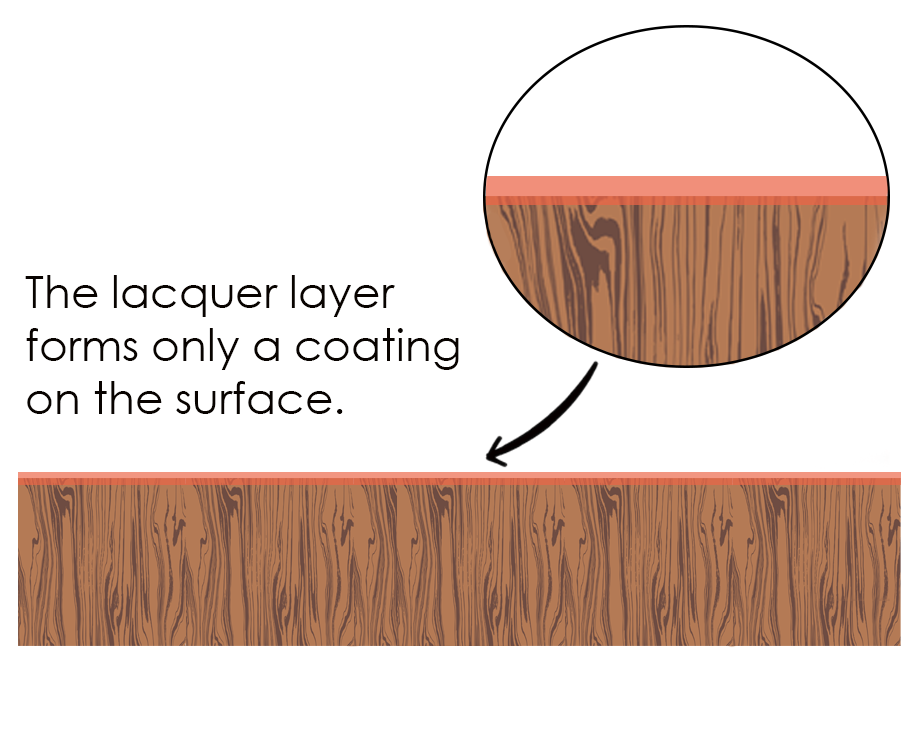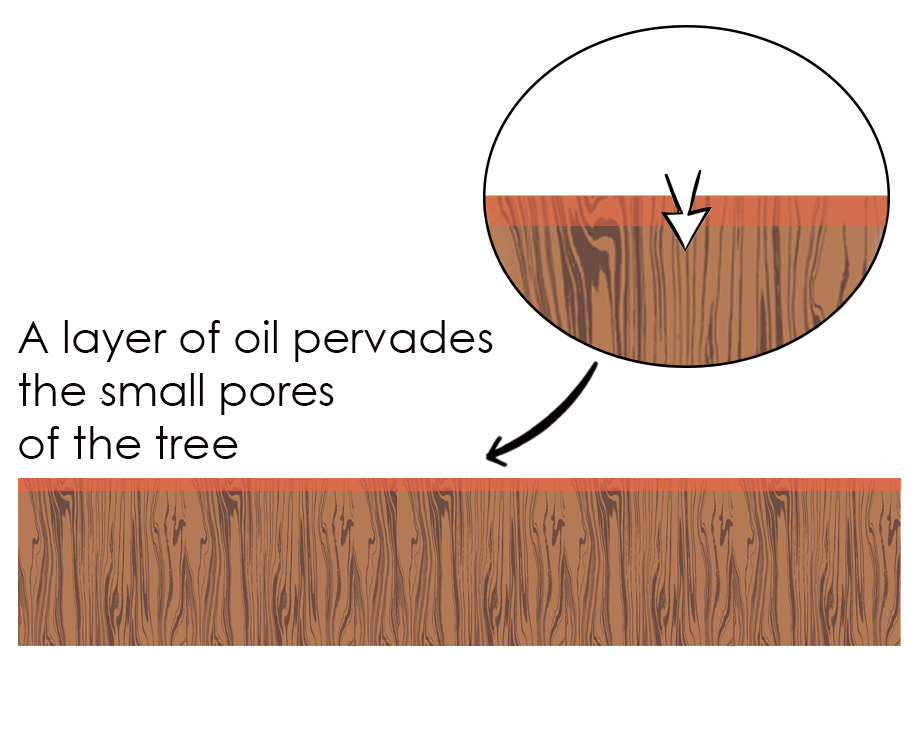What to choose for a river table: natural oil or varnish?
 20048
20048One of the previous topics of our blog was "Features of the wood selection for the table river". Those who read it understood that making a table with epoxy resin is not a simple matter. After all, there is a lot of nuances not only at the stage of creation, but also during preparation.
Today we continue the broad theme of "Making a table with epoxy potting." Having dealt with the peculiarities of wood, it's time to tell you about the coating of the table tops with various varnishes and oils. You will learn:
1. How do oils/varnishes interact with wood?
2. What is the difference between them?
3. What are the advantages and disadvantages?
4. Are they dangerous for the body?
5. What to choose?
And in conclusion, we encourage you to look at how we treat one of the tables with oil.
How do natural oil and varnish work?
Although these 2 substances belong to the resin class, however, their working principle is different. When a natural wood board is coated with varnish, a layer of protective coating is formed on the surface, which will keep the product from mechanical damage. After all, the entire load will crouch not on a tree, but on a layer of varnish.

When processing oils, the substance penetrates into the small pores and crevices of the tree, filling the space between them. Of course, a certain layer is formed, but it will be ten times less than varnish. Thus, the action of external stimuli is directed to the tree itself. True, unlike lacquer, the oil will work with the wood in a pair and will begin to strengthen it from the inside.

Differences between natural oil and varnish
1. Touch.
If you hold your hand over the lacquered surface, you will get the impression that the palm of your hand slides on smooth plastic. In most cases, the wood texture is not felt at all, because it is separated by a layer of varnish. In practice, it looks like a wooden product was placed in a protective case or sarcophagus.
Oil treatment gives the opposite feeling. Since no protective film is created on the surface, all the roughness and texture of the wood are felt.
2. Damage.
The varnish coat withstands much more damage. After all, the load will fall on the "armor" of the tree. True, it is also necessary to take into account on what grounds these resins were made. Because certain varnishes do not withstand water droplets or a hot cup of tea, while high-quality oil easily copes with them.
3. Refresh.
Oil-impregnated wood is not so resistant to mechanical stimuli. However, it is much easier to refresh. As for the restoration of the lacquered table, it is necessary to remove the cover from the entire surface.
Oil coating does not require such extensive work. You can refresh any areas without sanding and removing the protective layer.
4. Synthetics and naturalness.
This difference affects pricing. Since oils are natural resins and environmental products, their cost is much higher.
Advantages and disadvantages
Natural oil
+ Environmental friendliness.
+ The feeling of a living tree.
+ Pleasant to the touch.
+ Ability to locally correct deficiencies.
+ Works in tandem with the tree and strengthens the inside.
- high price.
- periodic update.
- requires more thorough care.
Varnish
+ Great hardness.
+ Better resistance.
+ Durability.
- Restoration requires considerable effort (polishing, complete removal of varnish from the surface).
- Certain classes are heavily exposed to solvents.
- Not so pleasant to the touch.
Health risks
Perhaps some are concerned about the issue of safety and the effect of synthetic resins on the body. Especially when it comes to dining tables. We hurry to inform you that you should not be worried. This issue should be of more concern to environmentalists since the process of manufacturing such substances involves harmful emissions into the environment.
For this reason, natural resins are highly valued, because they are mined from different bones, and not because of the work of hazardous chemical plants.
What to choose: varnish or natural oil?
At the moment, the oil is in the trend. Every day its popularity is growing, but it is not as common as varnish. This is because it is a relatively new way of processing wood. If we talk about large enterprises, the factories use only varnish.
If you have difficulties in choosing the type of coating, it is necessary to understand for what purpose you decide to buy a wooden product.
In any case, if there are difficulties with the choice, we will always be happy to provide you with professional advice.
In conclusion, we offer a look at the process of processing the river table with natural oil.
Leave a comment via Facebook:
Kochut and our partners use cookies on this website. Some of them are required for the site to function properly, but the following cookies are optional:
— cookies that analyse website usage;
— cookies used to personalize the site;
— cookies used for advertising and social media purposes;


